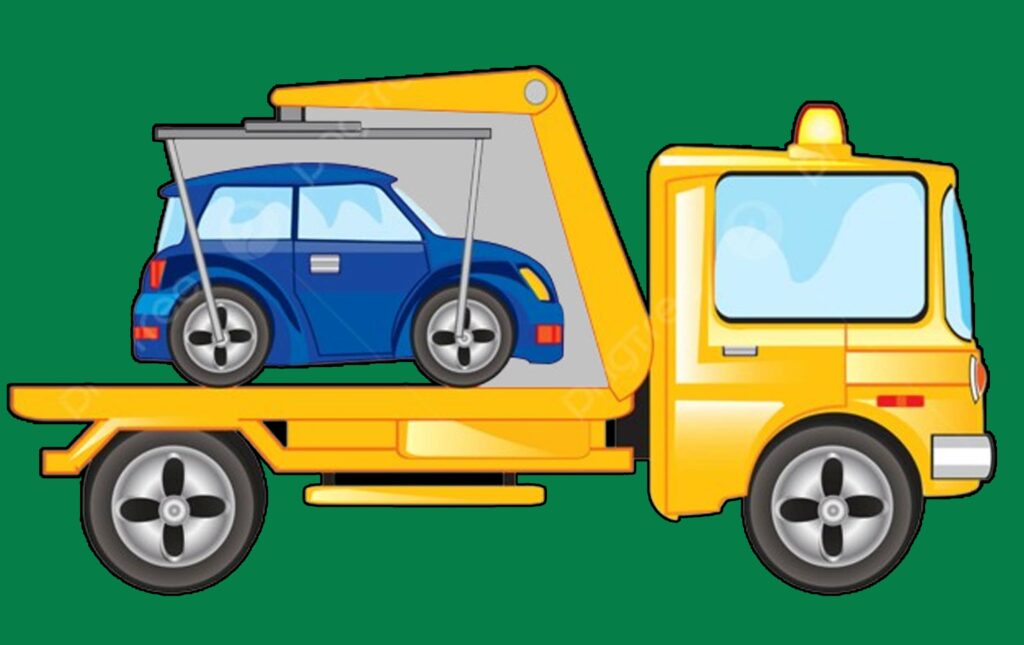As a tow truck driver, there are lots of pressures on you. Your customer expects the vehicle with you to be in good condition as they left it. But what if something happens to the vehicle while being towed? This is where on-hook towing insurance comes in. It is a coverage that helps to protect your customer’s vehicle while you are towing it.

In other words, on-hook towing insurance is a coverage that protects your customer’s vehicle that is hooked to your towing truck. Although you may have the physical damage coverage that covers your tow truck in case of an incident, it does not cover the vehicle that is hooked to your wrecker or rollback. It will only cover your business truck. This is why every towing business should consider on-hook towing insurance.
What Does On-Hook Towing Insurance Cover?
On-hook towing insurance covers your customer’s vehicle while it is attached to your tow truck or hauler. If you or your driver are at fault, this coverage helps pay for repairs or replacement if the vehicle is damaged or stolen. Damage usually ranges from small damages to total loss. And since the vehicle was in your care, your business is responsible financially.
Theft is also covered by this policy, whether it’s the entire vehicle or just parts of it. Vandalism is another big risk, especially in high-crime areas or if you leave the vehicle unattended. If you or your driver caused an accident, this policy covers the damage, including unusual events such as explosions or fires.
On-hook towing insurance may also cover the vehicle during hooking or loading onto your truck. And while unhooking or unloading. Always keep in mind that a tow truck or hauler’s insurance does not cover these situations. Your business vehicles’ insurance doesn’t cover other people’s vehicles, even if they’re attached to your towing truck. That’s why towing and hauling businesses need to purchase on-hook coverage in order to avoid significant financial loss from incidents that happen while vehicles are in their care.
Is it Compulsory to have On-Hook Insurance?
You may be mandated to carry a minimum amount of this coverage to do your business. This means you will need to purchase at least the minimum requirement of the on-hook insurance to run your business. Keep in mind that the requirement for this insurance may vary from one state to another. So, be sure to check the requirements for your state.
How Much Does it Cost?
Just so you know, on-hook coverage is usually bundled with your business vehicle liability insurance, forming a huge portion of it. There are different factors that make up the final cost of the coverage. They include
- The types and how many trucks you have
- The model of trucks
- The type of cars that you tow
- How far and where you tow to
- How many claims have you filed so far?
- Driving History
- The drivers
- Drivers ages, records, and experience
- Deductible and coverage limits
The above are just a few details that can affect the tow truck insurance cost. It is advisable that you get quotes from many insurance companies so that you can have a good knowledge of how much the right coverage will cost.
On-Hook Insurance Limits and Deductible
This coverage is very similar to every other policy. And that is because you will have to choose your coverage limits and decide on a good deductible. Keep in mind that the coverage limit should be enough to cover most unforeseen risks. However, note that the higher your limit, the higher you will pay for premiums.
You can reduce some of the costs by choosing a very high deductible (out-of-pocket costs). Work hand in hand with an experienced insurance agent to find the best balance for your coverage.
On-Hook Coverage vs. Garagekeepers Insurance
This coverage and garagekeepers insurance are usually mixed up. On-hook insurance is all about protecting vehicles hooked to a truck. Meanwhile, garagekeepers insurance will help to protect vehicles stored on your property.
In Virginia and Texas, on-hook insurance is commonly called “garagekeeper’s insurance.” And this makes this policy very confusing. In these states, garagekeepers insurance is called “storage location insurance.” To avoid confusion, you should ask your insurance agent to clarify these coverage.



